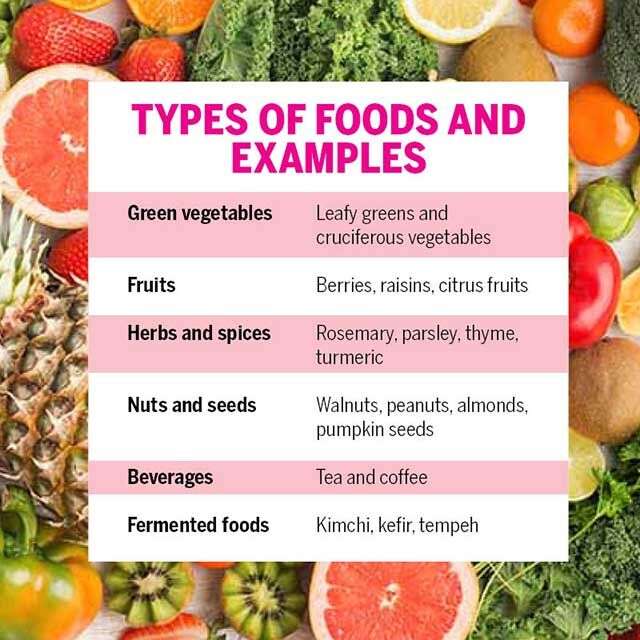
These proven tips will help women stay healthy. These include regular health checkups, healthy eating habits, and exercising. HealthifyMe offers 12 tips to help women live longer and stay healthy. These tips and advice are based off personal experiences. These tips for health are our hope. Continue reading for more information. They may prove useful to you, too.
Exercise
Women need to exercise regularly as it helps relieve stress and improves health. Women are often too busy with household duties, paid work, child rearing, or raising children to make the time for exercise. But the truth is that even ten minutes of physical activity has the same health benefits as a longer exercise session. You don't need to do a 30-minute session, but you can still exercise at home.
Healthy eating
A varied diet that includes healthy foods such as fruits and vegetables, lean protein, and low-fat dairy products is a good choice for women. Women should try to eat as many different kinds of vegetables and fruits as possible, and avoid highly processed foods. For women, lean cuts like chicken and beef make the best protein options. These meats are high in quality protein. Women will need to consume different levels of protein at different stages in their lives.

Stress management
Many professionals recommend a combination healthy lifestyle practices and stress management strategies for women. These include healthy eating, regular exercise and a positive attitude. If you're struggling with stress, talk to your doctor about a personalized stress management plan. It is vital to take care yourself on all levels. Stress can impact your body and brain in many ways. You may feel overwhelmed by stress and want to take steps to reduce it.
Regular medical screenings
While many diseases can be prevented with regular medical screenings for women, some women should begin earlier than others. For example, over 30 percent of American adults have high cholesterol, which puts them at risk for heart disease and stroke. If you have any family history, it is important to discuss this condition with your doctor. High blood pressure, commonly referred to as "the silent killer", is another health risk.
Maintaining a healthy weight
It is crucial to control a woman’s weight for her overall health and well-being. To maintain a healthy weight, a healthy diet and enough exercise are key factors. Excess weight has negative effects on nearly every aspect of a person's health, including reproductive, pulmonary, cognition, and mood. Overweight and obesity raises a woman's risk for a variety of conditions, including heart disease, diabetes, and POS.

Get enough sleep
Your health is dependent on your ability to get enough sleep. Adults need between seven and eight hours of sleep each night. Only one third of Americans get this amount. Although both men and women have similar sleep problems, the majority of women suffer from more. In addition, women experience more physical and emotional consequences from inadequate sleep than do men. The National Women's Health Week is May 10-16, so getting enough sleep should be one of the top health tips for women.
FAQ
What causes adolescents to have mental health problems?
Adolescence allows us to begin to form our identities. We discover who and where we belong as individuals.
It is also a time where we can make new friendships as well as romantic relationships. These experiences can cause stress.
While stress is normal, you should seek out help if your stress levels are higher than usual.
Although you may think you can handle it all on your own sometimes you need someone to talk to.
During times of stress, your family members and friends can be there for you. They can also help you learn ways to deal with stress.
You might try meditation or exercising. Both activities can help reduce stress.
A group, such as a church or sports team, is another option. You'll meet new people, make new friends.
These are 5 ways to improve your well-being.
"Wellbeing" is defined as "the state that you are physically, mentally and spiritually happy." Many factors can affect our well-being. These include family, work, family health, relationships with others, education, finances and community. Your first step in improving well-being and your quality of life is to identify which areas need improvement. Next, change these things to improve your well-being.
Here are five tips to boost your well-being.
-
Exercise – Physical activity increases endorphins that make us feel happier.
-
Sleep – Sleeping longer than 6 hours each night will reduce anxiety and stress.
-
Nutrition – Eating healthy food (such as fruits or vegetables) will improve your mood.
-
Meditation - Regular meditation can reduce stress and anxiety.
-
Socialization – Spending time with family and friends makes us feel happy.
What can I do about mental health issues?
It's not always easy to prevent mental illness. But, here are some tips to keep in mind:
-
Don't drink alcohol. Alcohol can affect your moods and increase your risk of depression.
-
Avoid drugs. Avoid drugs. They can alter brain chemistry, making you feel worse.
-
Sleep well. Depriving yourself of sleep can lead to anxiety and depression.
-
Exercise regularly. Exercise is good for your mood and makes you feel happier.
-
Healthy foods are the best. Junk food can make you feel lazy and unwell.
-
Spend quality time spending it with loved ones. Spending time with people you love can make you feel happier.
-
Have fun. Enjoy life and try new things.
-
Social media can be exhausting. Social media sites can make people feel lonely and isolated.
-
Be kind to your self. Treat yourself nicely, even if you aren't feeling great.
-
Ask for help. If you're struggling to cope, ask for help. Talking with a friend or family member is a great way to get help.
-
Remember, it's OK to cry. It helps to release stress and tension. It does not mean that anything is wrong.
-
Be busy. Try doing something you enjoy.
-
It is important to maintain good hygiene. A lack of hygiene can make you look unattractive and unclean.
-
Keep connected. Stay positive by connecting with others.
-
Learn how to relax. Relaxation techniques like yoga and meditation can help you cope better with stress.
-
Find meaning in what your do. Finding meaning in your hobbies or work can help you feel fulfilled.
-
Concentrate on the moment. You won't worry about the future if you are focusing on the moment.
-
Set goals. Setting goals can motivate you to achieve them.
-
Do something nice to yourself. You can improve your self-esteem by doing something nice for you.
-
Practice gratitude. Gratitude will help you appreciate all the positive things in your life.
-
Volunteer. Volunteering can provide a rewarding way to spend time with friends and make an impact on the world.
-
Give back. Giving back to others can make you feel fulfilled.
-
Be aware of warning signs. You should be aware of warning signs and reach out for assistance if you notice any changes.
Why is mental well-being important?
Work, play, learn, and love. Mental health refers only to our overall health. When we refer to mental health, we mean the physical, psychological and spiritual factors that have an impact on us every day. There are many ways you can take care of yourself mentally, emotionally, spiritually and socially. You don't have to do everything at once; just start somewhere!
Understanding where you are at the moment is the first step towards improving mental health. Take this quiz to see if you're doing enough for your mental well-being. If you score low, then you might want to consider making some changes to your lifestyle.
Imagine you have scored high. Now, look at some specific things you can do to help maintain and improve your mental health.
-
Get Enough Sleep. Getting adequate rest helps keep your brain sharp and energized. The American Academy of Pediatrics (AAP), recommends that children get 7 to 8 hours of sleep per night.
-
Exercise Regularly. Exercise releases endorphins into your body, which makes you happy and less likely to stress. Aim for 30 minutes of exercise five times per week.
What are some examples?
Any condition that causes major distress or impairment in functioning can be considered mental disorder. Depression, anxiety, schizophrenia and borderline personality disorder are some examples of mental disorders.
How does mental illness affect our daily lives and daily activities?
Everyone is affected by mental illness at one time or another. There is one major difference between people with mental illness and those without it: they don't seek out help. If you feel like something is wrong, talk to someone about it. There are many ways to deal with depression, anxiety, stress, etc., such as therapy, medication, exercise, diet, meditation, and other methods.
Are mental health and work more important than mental health?
Mental health is extremely important for everyone, especially when we are working. If you feel stressed at work, you should try to relax by doing something fun like going out with friends, taking a walk outside, or listening to music.
Talk to your boss or supervisor if you feel stressed. They may be able offer suggestions to ease your stress.
Also, take care to your physical health. It is important to eat well, exercise regularly, and get enough rest.
Statistics
- Neuropsychiatric diseases are the leading cause of death and disability in the U.S., accounting for 18.7 percent of all years of potential lifespan loss and premature mortality.
- Similarly, for positive mental health, there is likely to be substantial agreement about some typical components (e.g., resilience to stress) 6, and controversy about more atypical components (e.g., career consolidation). (ncbi.nlm.nih.gov)
- Similarly, while there is some agreement about the boundaries of typical mental disorders 2, there is likely less agreement about those for positive mental health. (ncbi.nlm.nih.gov)
- Appropriate nutrition and exercise are likely among the most efficacious and cost-effective positive mental health interventions. (ncbi.nlm.nih.gov)
- In any given year, an estimated 18.1% (43.6 million) of U.S. adults ages 18 years or older suffered from any mental illness, and 4.2% (9.8 million) (healthypeople.gov)
External Links
How To
What are the Key Factors that Make Mental Health Vital?
Mental health refers the state of your mind, and emotional well-being. It affects how you feel, think, act, relate to others, sleep, eat, work, learn, play, and enjoy life.
Everyone needs to be aware of the importance of mental health. When we refer to mental health, we often refer to depression. Depression is a severe illness that affects millions every year.
A medical doctor must treat depression, which is known as clinical depression. There are several types of depression.
According to the National Institute of Mental Health, depression is "a common mood disorder that causes depression most of the time, a loss of interest in nearly all activities, feelings of guilt, low self-worth, disturbed sleep, appetite, poor concentration, thoughts of suicide or death."
People experience depression in various ways. Others may feel helpless, sad, hopeless and unmotivated. Others might feel numb or empty, restless and agitated, angry, fearful and/or scared. Still, others may feel nothing at all.
Depression can be treated. Depression can be treated with medication, psychotherapy, exercise and diet modifications. If depression isn't treated, it can cause serious problems at home and school as well as in your relationships.
Depression is more common for women than for men, though it can also affect boys and girls. Depression is the most common cause of disability for both men and women between 15 and 44 years old.